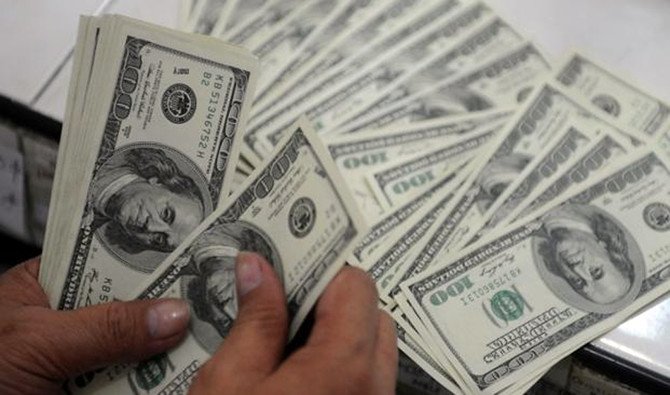- The country expects to raise $1 billion by selling saving certificates to Pakistanis working overseas
- The certificates, which are likely to have maturity periods of 3 and 5 years, will initially be available in the Middle East
- The saving certificates will primarily target small investors, mainly Pakistani workers in the Middle East
KARACHI: Pakistan is preparing to float its first overseas dollar-based saving certificates within the next two months, pending completion of legal and regulatory formalities.
“The country is targeting to raise $1 billion from overseas Pakistanis, especially those living in the Middle East,” said Zaheer Abbas, joint director of the National Savings product development and management department. “The concept paper, including the structure and term sheets et cetera, has already been drawn up and legal and regulatory work is in process.
“This is a big program, not a one-time issue, which will continue, and it will be launched with the approval of the federal cabinet.”
Trapped in an external-payments crisis, Pakistan is exploring new ways to raise much-needed foreign exchange to bridge the gap between the inflow and outflow of cash. The country recorded an $18 billion current-account deficit during the fiscal year 2018. The deficit for the first month of the current fiscal year, FY19, was $2.2 billion, raising fears of dire economic consequences if corrective measures are not taken.
Pakistan is initially targeting the Middle East with its first-ever saving certificates, which have proposed maturity periods of three and five years. “The issue is based on studies conducted and feedback taken from overseas Pakistanis,” said Abbas. “These studies indicate that they are more interested in three-to-five-year terms to liquidate their investment.”
The savings certificates will primarily target small investors, mainly Pakistani workers in the Middle East. Data from the Bureau of Emigration and Overseas Employment shows that 3.56 million Pakistanis work in the region. Saudi Arabia and the United Arab Emirates are the main destinations, with 1.7 million and 1.5 million Pakistani workers, respectively, in the past five years.
The target of raising $1 billion from the overseas saving certificates is based on studies of the average income and savings of expatriate Pakistanis.
“The proposal under consideration is that the smallest denomination should start from about $1,000,” said Abbas. “The decision to set up points of sales (PoS) in different countries is yet to be taken by the ministry. Similarly, the appointment of managers to supervise the system needs to be done as well. Overseas Pakistanis will be required to visit PoS in their respective areas and fill out a prescribed form and showing their passport or national identity card.
“Initially, the certificates will only be available to Pakistani nationals but a proposal to offer them to citizens of the host countries is also under consideration and may vary from country to country. It will be a continuous practice and will remain open for investors.”
–Courtesy Arab News




